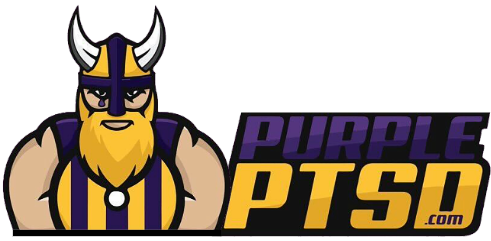McNiff’s Musings: ‘Miracle on Ice’ Linemates Remember Pavelich as Puck Genius

Note: This article is a preview from our new Minnesota hockey site, MinnyIce.com! Check that site out daily for great content.!
Mark Pavelich, a member of the USA’s 1980 Olympic Gold medal winning men’s Ice Hockey team that pulled-off the ‘Miracle On Ice’, was recently found unresponsive at a mental health facility where he had been receiving treatment.
“Pav loved the game of hockey, loved playing with his teammates, and embraced everything that came with that, he was the consummate teammate through and through”, says former USA teammate Rob McClanahan. “Great teammate and better friend, he’d give you the shirt off his back.”
Just 5’-8”, Pavelich, from Virgina, Minnesota, was an All-American at UMD before making team USA. In Olympic play Pavelich was 5th on team USA with 7 points during the course ofthe Olympic games, with two coming in the biggest game of all, Team USA’s 4-3 Upset of the heavily favored Soviet Union Red Army team, including an assist on the game winning goal.
Pavelich, the second player from the Miracle on Ice team to pass, following the death of Bob Suter in 2014, had struggled with his mental health in recent years, and we may find out whether he suffered from chronic traumatic encephalopathy (CTE) from concussions suffered during his playing career. But the focus of this piece is to remember Mark Pavelich the hockey player, and who better to do that than his Olympic linemates, John Harrington and William “Buzz” Schneider.
“The word I’ve always used with Mark is ‘Genius’, says Harrington. “He not only had tremendous physical skills and speed but he could think the game. Not only think it well but he could think it fast. I mean, his ability to make adjustments and to make plays that other people would have to think about but for Mark it was instantaneous.”
“He wasn’t a north-south type player like everybody was back then,” adds Schneider. “He used to go east and west and he was very creative, very spontaneous, and when I played with him he used to say, ‘Buzz, don’t you worry about it. You just get in front of that net and I’ll put it on your stick and I said, ‘I can do that,’ so, we hit it off really good.”
All three players hailed from Minnesota’s “Iron Range”, honing their skills on outdoor rinks, often times playing in pickup games with 10 or more players per-side. Ideal training ground for the type of transformational game Team USA Head Coach Herb Brooks would institute to ultimately trip-up the powerful Russians.
“We kind of had the same game, says Harrington. “It was just that northern Minnesota game where you learn to move the puck and get it back and that’s how we played and that’s how it seemed to work for he and I and it worked with Buzz Schneider too, he played the same way, also being from northern Minnesota.”
Harrington and Pavelich were teammates for three years at UMD and linemates for one. As Brooks was trying to find the right mix of players, he added Buzz Schneider to the line of Pavelich and Harrington, and then he left that combinationalone.
“A lot of times before games at the pre-game meeting Herb would come in and he’d name the lines off and we all paid attention because we were always trying to figure out where we stood on this team,” says Harrington. “And it was like, ‘OK. Johnson, you’re playing with McClanahan and Strobel, and Broten, you’re playing with Christoff and Verchota,’ then, he’d just say, ‘Pavelich, you guys just stay the same.’ And it was Buzz Schneider and myself and Pav and we were kind of hoping that was a good thing because maybe he had settled that that group was going to play together.”
Brooks not only left the line together, but they somehow picked-up the nickname “the Coneheads.” The name was a play off a sketch that was popular at the time on the comedy show Saturday Night Live.” And while both Harrington and Schneider agree who came up with the name, they say ithe motivation behind it was a much different reason.
“Actually, the guy who coined was Mark Pevelich,” says Schneider. “When Herbie was coaching, the other three lines would be down on the other end of the ice doing the power play and we would be at the other end shooting on the goalies andthey had these orange cones, and you had to veer off these cones to shoot on the goalies, and Pav looked at me and he says, ‘Buzz, we could be sitting down here doing anything, we’re just like these cones.’ So, we just started calling ourselves the Conehead Line. But what was funny was during the games we’dalways end up on the power play, so go figure?”
Brooks trusted the Conehead line enough to leave it in-tact throughout the Olympic tournament, and in the game against Russia, Pavelich, like the rest of his U-S teammates, played a game for the ages.
“He assisted on my goal,” says Schneider. He pulled everybody to the left and he threw right back with everybody going the wrong way. On Eruzione’s goal, I had the puck and I shot it in from center ice and went off for a line change. Eruzione came on for me while Pav went into the corner and he dug it out and he threw it out to Eruzione who got it and scored his great goal.”
Adds Harrington, “You always knew what kind of effort you were going to get out of Pav and you always had to be ready because part of the greatness of Pav was his ability to use the people around him through the skills that he had, and we understood that.”
Forty-one years after shocking the world, the Men from the Miracle on Ice have lost their head coach and now, two teammates. And while stories in recent years focused on Mark Pavelich’s off-ice struggles, his former linemates hope that we remember a player who was at his best when and where it counted most.
“He was sharp, he was witty,” says Harrington. “He may not have been an expressive person but he was an expressive hockey player, and when you saw him on the ice you saw an expressive hockey player and he was terrific.”
Adds Schneider, “Pav meant a lot to that team. When he had the puck he was creative and I couldn’t wait unto the next shift because you would get out there and he would do something with the puck that other guys just don’t do. He was a good center, I’m glad I had the opportunity to play all year with him and I’m sure going to miss him, that’s for sure.”
